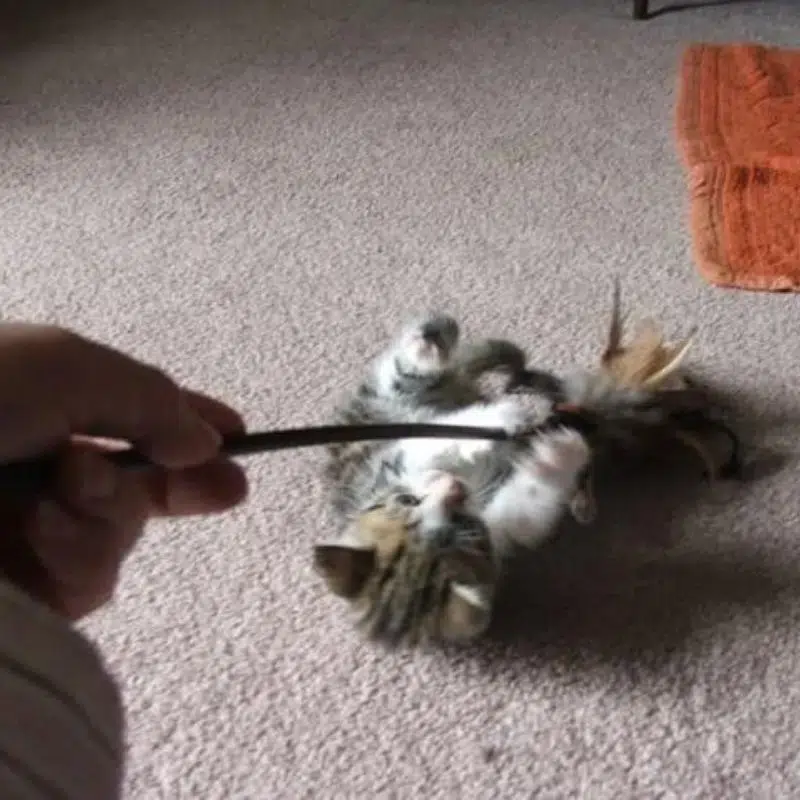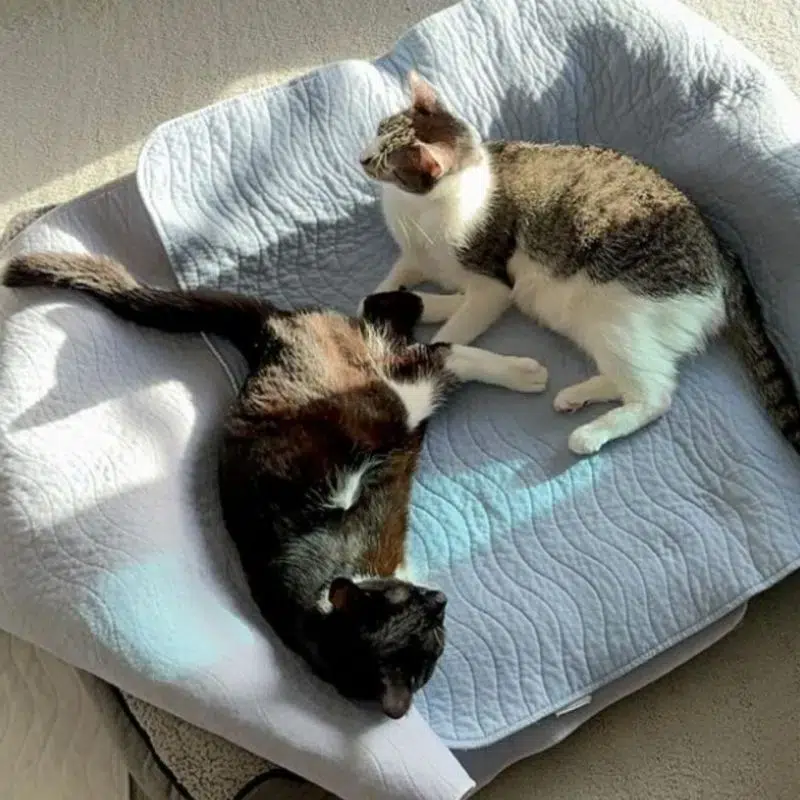We would all like to think that we are the perfect pet parent, doing everything we can to make the little guys and gals happy.
That being said, cats can be tricky creatures, becoming sly, or shy when it comes to letting you know how they really feel. In addition, they have their own entire language that you may just not understand — which means you have to learn to speak their language in order to be able to fully take care of them. Cats and dogs are completely different creatures, although there are some things that they both need, the most important of which is love!
There are many things that you should never, ever do to your cat. Cats can easily get depressed and fearful of people if they are not treated in a certain way. All cats are quite unique and will need slightly different things. However, these 11 no-nos should never, ever be a part of caring for a cat, whether they’re young or old.
1. Never Subject Her To Secondhand Smoke
Secondhand smoke is renown to be bad for all beings, human and animal alike. Smoking around your pet may lead to serious long-term health problems, including cancer.
2. Deprive Your Cat Of The Outdoors
Even if your cat is an indoor cat, there are still many ways to expose her to nature. You can keep window shades drawn and the windows cracked just enough so she can see what’s going on outside as well as feel the breeze, but not enough to slip through. Also, hang bird and squirrel feeders near windows so that your cat can watch as the critters stop by.
3. Don’t Forget To Clean Her Water Dish
You can’t just replenish the water dish, or even dump out the old water and then replace it with new water — you have to actually scrub out the surface of the bowl well in order to get rid of that slimy layer that accumulates in just a day or two. Imagine drinking from a slimy water glass all the time!
4. Don’t Rely On Odor-Eliminating Kitty Litter
You can’t just ignore the fact that your cat is stepping in a pile of her own waste when she goes to do her business simply because you can’t smell what’s going on. Scoop the poop every single day, even multiple times a day, or else your cat will get depressed from having to step in her own feces all the time.
5. Never Treat Her As If She Loves Solitude
The entire idea that cats don’t need love and attention like dogs do is completely absurd. Cats simply don’t have the desire or need to please humans as much as dogs, but that doesn’t mean that you can ignore them.
It’s also incredibly sad to have only one cat at a time if you’re not home often enough to spend quality time with them. You should make sure you get plenty of playtime in, and that he or she is getting lots of attention and love.
6. Do not Ignore Body Language
Cats have various ways of expressing themselves, but their body language is usually a pretty easy way for us to read them. This may also be one of the first signs of unhappiness or fear in a cat.
There are those times when she really does not want to be touched or picked up, such as moments of stress. She’ll most likely lash out and potentially cause harm to the both of you. You should take note of how often your cat likes to be picked up and respect that need.
7. Don’t Ignore Litter-Box Habits
If your cat seems to be missing the litter box or perhaps urinating in other places, it’s more than likely a sign that she is stressed out or depressed.
Cats can use their own scent to calm themselves, and so, they may end up marking an important spot of your home, much like a doorway (where you leave her alone all day) or your bedroom. If this is happening with your cat, then it may be time to make some adjustments!
8. Don’t Be Too Loud
This can simply mean greeting them with too much excitement when you see them after work, or yelling loudly when they’ve done something bad. Cats are ver sensitive to sound and may begin to fear you if you are too loud around them.
9. Don’t Assume She’s Feeling Fine
Cats have mastered masking their pain, and you have to keep a very keen eye out for signs of it. This can include paying attention to how vocal they are with you, their energy levels, their eating habits, their sleeping habits, their litter-box habits, their body language, their grooming habits, and even their physical appearance.
Cats are never going to let you know when they have a potentially deadly urinary tract infection or infected gums, so you have to keep a keen eye out and make sure you’re going to the vet regularly. Changes in these behaviors often point to depression, as cats may start to cry out when they have lost a close companion or become silent with sadness.
10. Never Leave Her In Complete Darkness
Cats can be greatly impacted by seasonal affective disorder just as humans can, and so, you should make sure there is ample sunlight for your feline. You also shouldn’t leave your home completely dark while you’re gone, because it can make your cat feel like she has been abandoned. You should leave a little light on to remind her that you will be back soon.
11. Do Not Jump To The Most Extreme Solution
Some veterinarians may suggest that you start giving your cat antidepressants and even anti-anxiety medications to help treat a problem, when all you really need to do is spend more time with them, giving her plenty of things to be happy about. Make sure that taking a big step like medication is something that is an absolute necessity.
If you are not able to spend more time with your cat, it may be worth considering getting her to a home that will be able to do so, as many medications could have extreme side effects.
Great tips!














